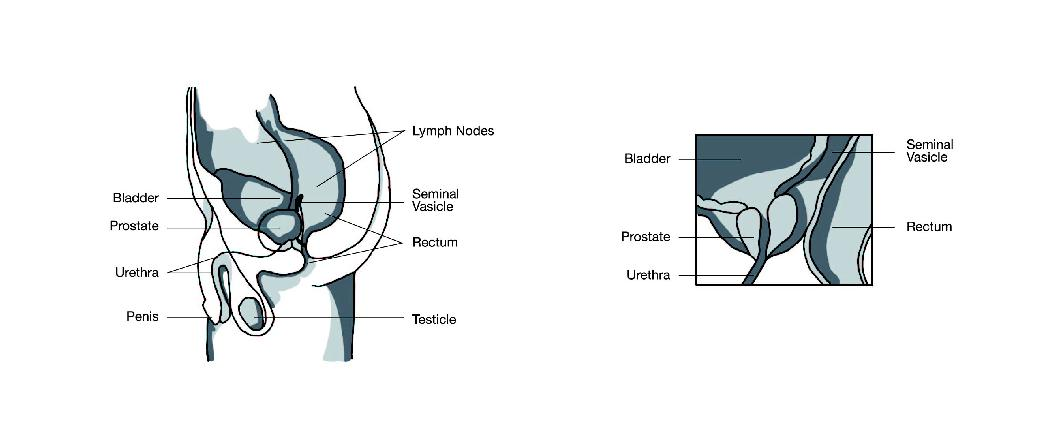Healthcare for Men: Prostate Cancer
The prostate is a small gland the size of a walnut that is near the bladder. Often, the prostate grows larger in older men, but it’s not usually cancer. This is called benign prostatic hyperplasia (BPH). It can cause a variety of urination problems, including waking up to urinate several times at night and a slowing down of the flow. BPH is often treated effectively with medicines; if not, a simple operation is done to relieve the symptoms – like cleaning out a blocked drainpipe.

Some men develop prostate cancer. It takes years to develop and usually does not cause symptoms, especially in the early stages. If your doctor finds prostate cancer early, it can be cured.
Advanced prostate cancer can cause pain if it spreads to the bones, such as the back and ribs.
Who is at risk?Men after the age of 40 are at risk, after which time the likelihood of getting this cancer increases progressively.
Men who have been exposed to cadmium, or too many x-rays, as well as farmers are at higher risk.
What can I do to ensure that, if I were to develop prostate cancer, it is detected early?Request a prostate exam from your doctor, at least once a year, after the age of 40.
Your doctor may also recommend a blood test (if available) called PSA, which can also help to find it early.
If there is any suspicion, a biopsy (taking needle samples of the prostate) may be recommended.
What are the treatments for prostate cancer?If caught early and curable, different forms of radiation as well as surgery are all effective treatment options.
Late cancer is initially treated by lowering blood levels of male hormones (called androgens).